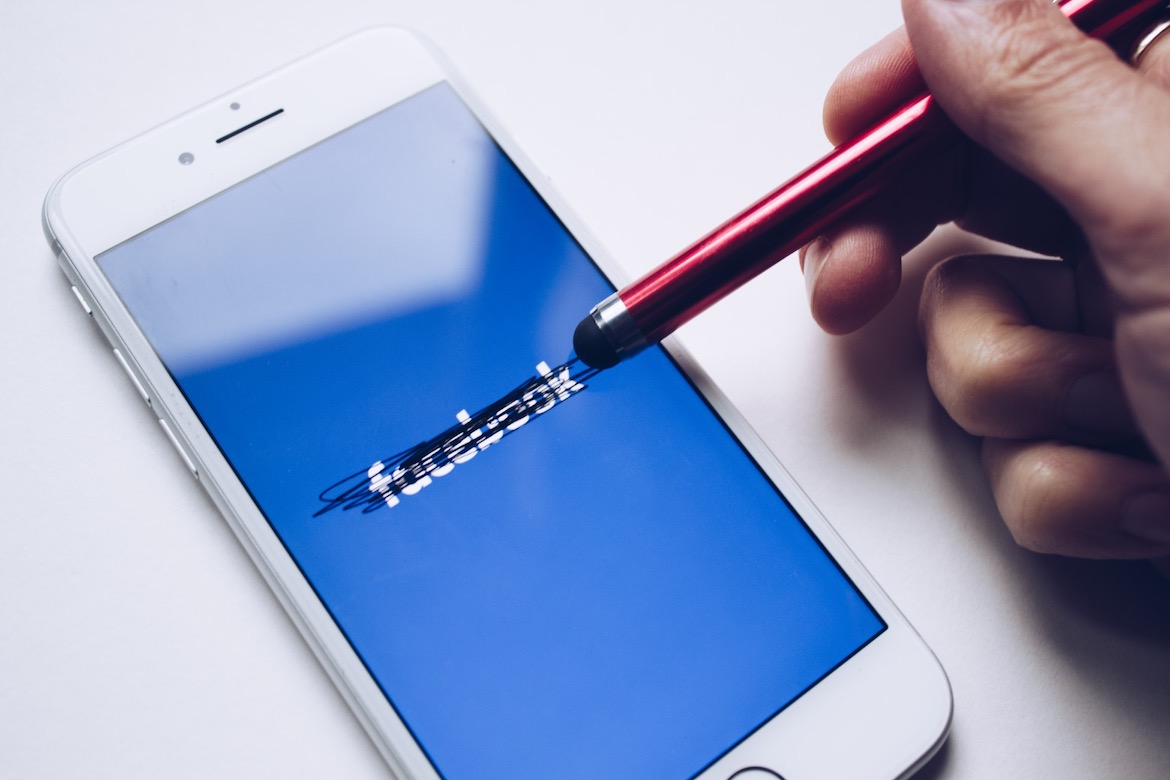It’s no secret to anyone that in today’s society there’s simply no escaping the technological advancements that have simply swept the world off its feet in these past few years.
Wherever you go and whatever you do, as an individual, you’ll most likely be connected all the time. It can be either through your Facebook app, your email account, your trendy Fitbit bracelet or a smart thermostat for your home.
Regardless of the gadget or app you’re using, you can be certain that by engaging with them, you’re giving certain sensitive data and information for companies to process. We’re talking about your name, your location, your passwords, your financial information, as well as information regarding your online activity.
That’s actually all fine in the end, since we ultimately gladly give our consent to these apps and devices to have processing rights over our personal information.
And although the odd security breach does happen from time to time or a scandalous way of using this information is brought into the spotlight by the media once in a few years, we can all safely assume that our data stays safe and we feel no remorse for having given certain companies access to it.
What happens in the workplace stays in the workplace. Or does it?
This happens in our own private lives, with the actions we can hold ourselves accountable for. If we made a Linkedin account, we should also be prepared to give Linkedin sensitive data, like our password, as well as to let our personal information float around for anyone to see.
But what happens in the workplace, where we need to adhere to someone else’s rules, namely the employer’s?
In this case, the picture takes an entirely different look. There’s an entire dilemma around the right to privacy in the workplace and naturally, employers and employees will have different opinions on where the limits should be placed regarding this topic.
An employer may not only need to have access to all your passwords and data within the company, but may also enforce a stricter type of surveillance.
On the other hand, the employee may have a more subjective expectation of privacy and will find the employer’s restrictions as being abusive and intrusive.
And of course, privacy expectations will be different for employees of the public sector compared to employees of the private sector.
Since the subject of the right to privacy in the workplace is a delicate one and the conclusions are not always definitive and crystal clear on the subject, this article will attempt to take a more in-depth look on the matter and shine a light on this now hot topic.
What’s the debate all about?
The right to privacy is a basic human need and therefore a very sensitive topic, especially in cases where you need to surrender so much of yourself, of your preferences and your way of doing things – such as when having an employer.
Employee monitoring and privacy-related issues have not always been the case in the workforce market. However, employers everywhere have started feeling the need to know and measure their employees’ work patterns and volumes.
This need has become more prominent ever since the Internet became so volatile and readily accessible to all – this meant, of course, the employees could jump online at any time and get lost in the vastness of the internet, forgetting to perform the tasks at hand.
Productivity did have to suffer greatly, companies took notice and eventually acted on it. Data shows that around 80% of large US companies now monitor how and when their employees use the internet or the phone.
On the other hand, some privacy issues arise from the inevitability of using technology in the workplace.
When talking about this, we need to consider the extent of time for which the employee is using that piece of technology or office space, whether or not the employee is using that office space or piece of technology exclusively and to pay attention to how the employee’s personal items or information is stored.
All these factors will stir up privacy right debates, which will undoubtedly attract two different opinions and two different sets of arguments to the story: the employer’s and the employee’s side of the story.
Should employee monitoring be allowed?
In most cases, employee monitoring is not illegal, so the employer is not technically violating any laws out there. Having said this, the employer will most likely violate the employee’s trust by monitoring their activity and not saying a word about it.
If the employer readily assumes the employee has no expectation of the right to privacy, they will most likely implement abusive steps in this direction. This will naturally lead to the employee feeling like they’re working for a disrespectful company, in an intrusive environment.
Breaking it down
However, the line can sometimes be fuzzy between what’s normal and what’s scandalous in terms of privacy rights in the workplace. Let’s break it down then and take a closer look at the types of technology the employee is using and that can cause such a stir:
Text messages
One of the most efficient and fast forms of communication nowadays, a text message is typically a private type of communication between a sender and a receiver. However, if the text message is sent from a company phone, this will give the employer certain rights regarding it.
So, for example, if the employer has a legitimate reason to search the employee’s phone and look at that specific text message, they will ultimately have the right to do so.
This may happen whenever there is reason to believe the employee engaged in unwarranted conduct that has the potential to interfere with the company’s rules and regulations.

Another case when this may happen is when the employer needs to increase the limitations of the company phone’s plan in order to adapt it to an increasing number of users in the system, for example.
Having said this, it’s important to know that each claim in this direction comes with its own set of facts, dictated by specific and unique circumstances. This happens mostly because devices are omnipresent and are a vital part of the company’s daily operations and tasks.
This also happens because the employer most often than not feels entitled to know about the employee’s actions and to have the employee at hand during and sometimes after work, while the said employee will almost always use the work phone for personal communications, as well.
Emails
Perhaps even more ubiquitous than text messages, emails are now a core communication means for any company, regardless of its size and background. Employees often use the company’s emailing system to communicate company-related information to outside third parties.
Similar to the text message scenario, the employer will have right ‘over’ any email sent by the employee through the company’s emailing system. Even though the employee may use this communication method to send a personal message, they should not expect to have any privacy right on the matter.
In this case, in order to search certain emails, the employer doesn’t need the exact device the email was sent from. Instead, the employer will have email access, at any time, through its email servers.
Similarly, the employer has the right to access an email sent by or received by an employee on their work phone. If the employee uses a private account for a work-related email, the employer is entitled, once more, to gain access to it whenever the situation calls for such a measure.
Phone calls
This may go without saying – any phone calls conducted by the employee on the company’s phone, in work interest, can and will be listened to by the employer.
In fact, many companies will monitor employee calls for quality control purposes. In this case, both the employee and the receiver of the call will be notified regarding this action.
An employer may also establish a policy against personal calls in the workplace and on the company’s phone. If such a rule is violated by the employee, the employer has the right to listen to the calls – at least to listen to them enough to establish the wrongful conduct.
In case there isn’t such a rule in place and the employee does make a personal phone call on the company’s phone, the employer is supposed to stop listening to the conversation as soon as they identify it as a personal one.
Once more, whenever the employee makes a call on the company’s phone, they cannot expect to have a right to privacy and will most likely be subjected to the employer’s intrusion.
Ultimately, regardless if it’s text messages, emails or phone calls, the employer has, without any doubt, the right to access them if they were sent or received on a company’s system or device.
Social media
We’ve gotten so far with our list of available communication methods for employees in the workplace, only to come to a screeching halt with social media.
This is the one topic that poses a lot of questions and debates and no universal conclusions. At least so far.
It’s safe to assume that a vast majority of the planet’s workforce uses at least one of the following social networking sites for personal communication: Facebook, Whatsapp, Twitter, Instagram, QZone, WeChat among others.
It’s no wonder then that often times, the same people use these networking sites while at work, as employees.
Since the use of social media is so prevalent among people everywhere, regardless of their background, employers often tend to notice a drop in productivity at the workplace. This is why they may enforce a policy that prohibits employees from using social media during work hours.
Alternately, some employers may allow access during normal work hours or only during breaks or they may set up their own internal social networking sites to help employees collaborate on work-related matters.
Some companies may even establish a more official networking site of their own that can be used by both employees and clients or business partners.
Most people tend to regard their profile on social networking websites as private. However, it is a well-known fact that recruiting nowadays mostly happens after a candidate’s social media profile was closely inspected for more in-depth personal information.
Since a recruiter can and will find an employee’s social media profile, what’s stopping the employer’s competitors to also stumble upon it and carefully scrutinize it? Pretty much nothing.
The same social media profile can also be found by the employee’s work colleagues, government and law enforcement agencies and even the employer itself.
In this case, employees and people, in general, should know that the personal information they display on social media can ultimately be viewed by unintended people and companies.
Disclosure of personal information or confidential business information on social media may lead to seriously aggravated scenarios, such as privacy complaints, copyright, patent or trademark infringement claims or even defamation lawsuits.
In order for this to be avoided, the employer needs to establish rules and regulations in this aspect and communicate them to the employee. These should include best practices, definitions of what acceptable social media usage in the workplace is, as well as the consequences of abuse or violation.
Additionally, if the employer decides to monitor the employee’s social media usage, they must notify the latter immediately.
When it comes to confidential business information, the employer needs to make it clear why such information cannot be disclosed by the employee to third parties.
These are the most common types of technology used in the workplace that can typically draw confusion and give way to serious issues between an employer and the employee.
However, the list of privacy concerns does not conclude with and resume to technology use in the workplace. Let’s look at other cases that may spark privacy debates:
Video monitoring
As you may already know, many employers out there use video cameras in their shops, locations or work spaces in order to prevent theft and maintain a safe level of security.
In such cases, video monitoring should constitute no issue as long as the employee is notified.
However, there are some cases when the employer is not allowed to video monitor its employees, such as videotaping union activity. Another consideration with workplace video monitoring is that these cameras are never allowed to record with audio, which would be considered a violation of the employee’s privacy.
Regardless of the job at hand, the employer must have a legitimate business reason whenever they decide to video monitor an employee’s activity.
This is why, you’ll often find video surveillance cameras and commercial security systems in banks, jewelry stores, retail stores and so on, where there is an increased risk of theft and security breaches. It only makes it reasonable then for employees in these workplaces to have no expectation of privacy.
However, a corporate employer cannot expect its employees to not have any issues regarding video surveillance in a cubicle environment. These employees only interact with other employees and not the general public, so it’s difficult to prove why exactly they would need surveilling.

The policy on privacy rights and data ownership will never be the same again
2018 also brought forth a growing concern regarding digital data ownership and privacy rights on social media platforms and other applications that are in conjunction with them.
A particular case captured the media attention and news on it quickly spread worldwide. It’s about the hearing that Mark Zuckerberg, founder, chair and CEO of Facebook, had before the House Energy and Commerce Committee, where he had to testify on the way Facebook operates when it comes to its users data.
This came in light of another important scandal that had centered Cambridge Analytica, a political consulting firm whose digital business practices are nothing short of conspicuous.
The company obtained information pertaining to millions of Facebook users from an third-party researcher. The latter gave away the information by breaching its own agreement with Facebook. Of course, chaos ensued and Facebook needed to account for its actions.
The purpose of the hearing was to get an official stance from Zuckerberg on how Facebook shares its data with marketers. Because, as we all know it, Facebook has become pretty good at guessing what we really like and placing an ad just so where we can see it on its pages.
However, Zuckerberg continued to dodge giving a clear answer on the matter, which in itself speaks volumes in terms of how the company doesn’t actually sell its users information to third party companies, but sells them access to this information.
Users are less and less pleased with this, so change is bound to happen in this department.
Another great step towards protecting the user’s privacy rights has been made in the shape of a new regulation in the EU law. It’s called the General Data Protection Regulation, or GDPR in short, and it will be effective for all individuals within in the European Union starting May 25th 2018.
This basically gives citizens greater control over their personal data and how it’s being processed. This is why companies which intend to sell goods or services to the citizens of the EU and hold their information, can be held accountable under the GDPR.
This basically means that companies are not allowed to store the citizens’ private information in the ‘cloud’ or in any separate physical location. If this does occur, these companies can receive hefty fines at any time for law violation.
Tips for employers
As we can tell from the above mentioned work-related privacy situations, the employer mostly still has an upper hand on the employee in terms of activity tracking, searches and so on.
Since an employee always works with company property and systems, be it a car, computer or an internal social networking site, the employer will always have the right to track and obtain access to that employee’s records on using this property.
The only condition here is for the employer to integrate these rules into their employment contract and otherwise make them clear to the employee from the very beginning.
Not only should the employer go through which situations are acceptable and which of wrongful conduct, but also what the consequences of breaking these rules are for the employee.
Corporate employers who want to limit their employees’ procrastination and fuel their productivity can employ a user activity monitor solution. A single web-based console can provide you with in-depth user activity audit logs for any end-point of your company.
You’ll receive important metadata such as visited URLs, active application names, active window titles, typed commands and keystrokes. This type of program not only allows you as an employer to monitor your employee’s activity, but to also audit third party service providers that access your infrastructure and to record user activity on critical servers.
The Ekran activity monitoring solution also comes with other handy functionalities like real-time monitoring tool, video recording and record filtering.
These systems can make the employee feel as if they are working in a rather totalitarian workplace, but if used efficiently, they can diminish unpleasant situations, such as sexual harassment, violence or embezzlement.
Tips for employees
When it comes to privacy in the workplace, employees often feel caught between a rock and a hard place. There is very little wiggle room for an employee to maintain their privacy at work, but there are some tips and tricks to get away from Big Brother’s intense gaze.
First of all, you should find out if your employer is monitoring your activity. Try to find this out by reading your company’s policies and employment contract or ask your manager about it directly.
Although it may sound redundant, the first thing you can do as an employee to maintain a decent level of privacy in the workplace is to simply avoid using company property for personal use.
Instead only limit yourself to using the company’s phone, computer and other gadgets for work-related tasks. This way your work and personal accounts don’t get mixed up and your private information does not linger on in the belly of the internet, forever at risk to be found by your employer and other unintended parties.

A practical alternative to this is to either bring in your personal laptop for personal use or even simpler, to use your smartphone for any email or call you may need to send.
Additionally, you can refrain from using the company’s WI-FI and rather use your 4G network instead. Just make sure you have the data plan to cover it all. You should also learn how to browse the internet anonymously.
Another great way to keep away from indiscreet eyes is to make sure that you don’t store anything on the company’s computer. External drives such as USB devices are the right way to go with personal documents. They’re easy to handle, transport and will keep the employer out of your hair.
Even more so, you can use a flash drive to run a portable browser on, such as Firefox Portable or Google Chrome Portable. Although you may still be subject to monitoring, this way you’ll avoid loading up the cache on your company computer’s browser.
In the end, the employer and employee will always play an endless cat and mouse game when it comes to privacy in the workplace. They each have different needs and different views on what is permissible and what isn’t. However, the private employer does tend to have a bit more leeway than the employee, so it can be difficult to name it a fair game with equally potent sides.
But as long as the employer makes their employee monitoring intentions known and the employee agrees that any company property can be subjected to surveillance, leading them to find alternate solutions, a decent, conflict-free agreement can be made between these two sides.
About the Author:



